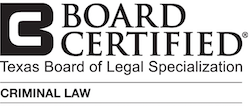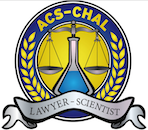Intoxication Manslaughter
The law for Intoxication Manslaughter in Texas is as follows:
§ 49.08. INTOXICATION MANSLAUGHTER
(a) A person commits an offense if the person:
(1) operates a motor vehicle in a public place, operates an aircraft, a watercraft, or an amusement ride, or assembles a mobile amusement ride; and
(2) is intoxicated and by reason of that intoxication causes the death of another by accident or mistake.
(b) An offense under this section is a felony of the 2nd degree.
Aggressive Defense
When a regular DWI charge includes the death of another, it will likey be filed and prosecuted as Intoxication Manslaughter. To read more about Felony DWI Offenses, please read here. If you are facing an Intoxication Manslaughter case anywhere in the State of Texas, contact the Law Offices of Carl David Ceder, PLLC, immediately so he can help begin building a solid and aggressive defense.
Due to the extremely serious nature of an Intoxication Manslaughter charge, District Attorney Offices will likely proceed vigorously to gain a conviction and impose serious punishment.
Driving While Intoxicated (DWI) charges are one of the only criminal offenses in the Texas Penal Code that does not have a victim. Instead, there is only a "potential victim." Meaning, there is only the "threat" that someone will be injured as result of the intoxicated driving. Sometimes jurors places themselves in the shoes of the defendant, thinking of how many times they may have possibly driven while intoxicated and not been caught.
This obviously differs with an Intoxication Manslaughter charge because there is a very real victim, and they likely died as a result of whatever accident occurred. The defense will have to take into account the considerble burden of dealing with the emotional nature of having a victim that was killed by what transpired.
<>"By Reason of Intoxication"
An Intoxication Manslaughter charge has to be the result of the intoxication of the driver. The law states, "by reason of that intoxication causes the death of another." What this means is that if the accident was not your fault, even if you were intoxicated, you may not be guilty of Intoxication Manslaughter. This could be the case where, for example, the accident was caused as a result of faulty brakes or through the actions of another negligent driver. If you did not cause the accident, regardless of whether you were intoxicated, you may have a defensible issue that should be explored.
Punishment for Intoxication Manslaughter:
- A Fine Not To Exceed $10,000;
- 2 years minimum up to 20 years maximum in the Texas Department of Corrections (TDC);
- If probation is granted, a minimum of 120 days in jail as a condition of probation;
- 240-800 hours of community service.
<>Deadly Weapon Finding
If you are convicted of Intoxication Manslaughter and the judge or jury finds that you committed the offense with a deadly weapon, you may be ineligible to receive probation at all. Offenses where the state alleges the finding of a Deadly Weapon are extremely dangerous charges because they are known as a "3G" offenses. That means it is one of the few offenses that Texas Law statutorily prohibits the judge from granting probation if you are convicted following a jury trial. Under Texas law, a "deadly weapon" finding prevents a person who has been sentenced to prison from accumulating any good time credit toward an early release for parole until they have actually served one-half of their sentence. An Intoxication Manslaughter charge, even with a deadly weapon finding, is classified as a 2nd degree felony.
A vehicle can found to have been a "deadly weapon" where an alcohol-related accident results in a death, or where a death could have occurred by the manner of driving by the defendant. The Texas Courts have held that intoxicated drivers who are involved in accidents where a death has occurred can be found to have used their vehicles as "deadly weapons." Moreover, the Texas Courts have also held that in an Intoxicated Assault case (where death did not occur), depending upon how the vehicle was driven, a "deadly weapon" finding may also be proper.
Contact Now
Contact the Law Offices of Carl David Ceder, PLLC, if you have been charged with Intoxication Manslaughter and are seeking the advice of an aggressive and experienced attorney. Carl handles cases Intoxication Manslaughter cases anywhere in the Dallas-Fort Worth metroplex and in Central Texas. Please call 214.702.CARL (2275) in Dallas-Fort Worth or 512.657.9992 in Austin for a free consultation.






















